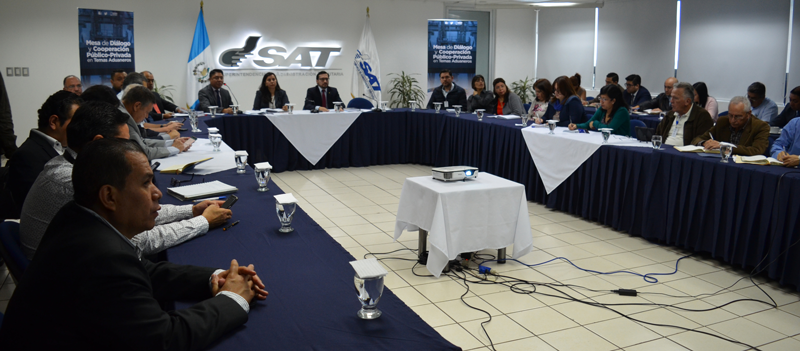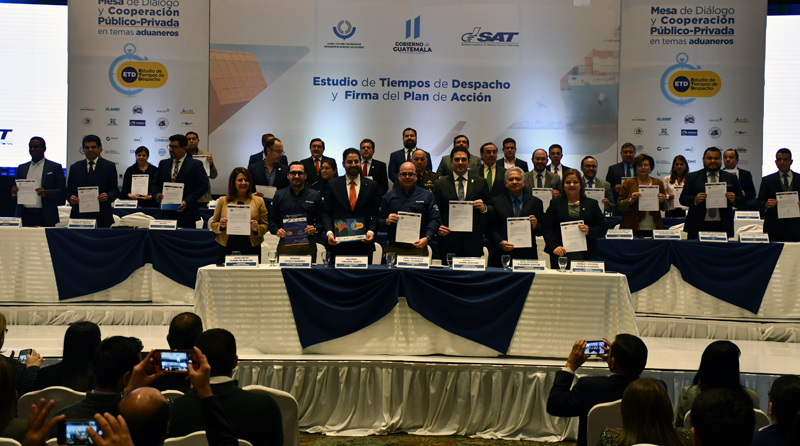Strengthening Public-Private Partnership: looking at the experience of Guatemala
21 June 2022
By Mr. Werner Ovalle, , Director General and Mrs. Lissette Balcárcel, Trade Facilitation and Authorized Economic Operator Unit, Customs Administration of GuatemalaIn 2017, we described in the pages of this magazine how the new management team of the Superintendence of Tax Administration (SAT) undertook major reforms following the “La Línea” case. La Linea was a fraud scheme in which importers paid bribes to avoid Customs duty or to receive greatly reduced tariffs in exchange for kickbacks that were shared among dozens of government officials and the country’s top authorities.
We explained that the revamped Customs service had decided to strengthen its relationship with private entities to fight corruption, and had established a “Committee for Dialogue and Cooperation between Public and Private Entities in Customs Affairs” (the Committee) so that all stakeholders could present their problems, visions and ideas without creating a burdensome consultation process. The Committee has been in operation for five years now, and has become a strategic forum for policy guidance and concerted actions. Below is an overview of how the Committee operates and what it has achieved.
Simplification, AEO and TRS
The Committee brings together 29 public and private entities, all involved in the cross-border movement of goods. Among them are the main business chambers, transporters, shipping companies, cargo agents, airlines, port authorities, warehousing firms, Customs agents, public institutions and, of course, Customs.
It is composed of three groups:
- a High-Level Group, comprised of the most senior representatives of the participating entities, who meet twice a year to review the progress made;
- a Technical Working Group, which meets at least four times a year to discuss the work plan and how it has been implemented;
- a Coordinating Group managed by the Customs service with three private sector entities. This Group discusses issues reported to it and actions to be taken; it meets as often as is necessary.
Since its formation in September 2016, the Committee has proved to be an efficient cooperation mechanism providing suggestions for procedures and processes to be developed or enhanced to make legitimate transactions faster and more transparent, efficient and secure. It monitors, for example, the implementation of the National Action Plan to Reduce the Time in Importation of Goods which resulted from the first Time Release Study conducted in 2019.
The Committee is now an integral element of SAT’s Institutional Strategic Plan, and of the work plans of the Integral Customs Modernization Programme.

In order to consult a wider base of stakeholders, users’ committees have been established in all the country’s Customs offices. Moreover, as part of the National Action Plan to Reduce the Time in Importation of Goods, specific communication activities have been organized with supply chain actors in the air, sea and land sectors in order to discuss how to enable cargo traceability and identify opportunities for reducing costs.
The work with business chambers has focused on promoting the Authorized Economic Operator programme. To date, four AEO Congresses have been held with their support, the primary objective being to explain the certification process as well as the benefits of participating in the programme. The benefits include the opportunity to be recognized as an AEO in countries that have signed a mutual recognition agreement with Guatemala, receiving attention when raising queries, and simplified procedures for certain operations.
Time Release Study
In order to measure the effectiveness and efficiency of border procedures, and to be able to assess the impact of these efforts in the future, SAT conducted its first Time Release Study simultaneously at the four Customs offices which collect the most revenue and manage the largest volume of transactions. The WCO strongly recommends that Customs administrations conduct a TRS in close collaboration with other relevant government agencies and private sector stakeholders. The TRS was therefore organized within the framework of the Committee. Guatemala is the first country in Central America, and the second in Latin America, to adopt such an inclusive approach when implementing the TRS.
The TRS enabled the Committee to identify areas of improvement as well as intersectoral, public and private strategies for addressing them. The list of actions and activities to be deployed was consolidated into a National Action Plan covering the years 2020-2023. All the members of the Committee signed a declaration in which they committed to the implementation of the Plan, with follow-up being monitored by the Modernization Department of the Customs Administration of Guatemala.
Promotion of ethics
Combating corruption, cementing the institution’s transparency policies and ensuring that staff comply with the Code of Ethics are some of the objectives set out in SAT’s Institutional Strategic Plan. In November 2018, the Customs Administration asked all Committee participants to develop their own codes of ethics to demonstrate their commitment on this issue. All of them declared their intention to review or create their own codes, and as of June 2022 sixteen of them have officially presented their codes, and three more have reported that they are working on this task.
Some of the private entities participating in the Committee also belong to the Regional Private Sector Consultative Group for the Americas and the Caribbean, whose purpose is to inform and advise the Secretary General of the WCO and WCO Member administrations on international trade matters.
Guatemala Customs assumed the role of WCO Vice-Chair for the Americas and The Caribbean Region from July 2020 to June 2022, and decided – together with the Regional Private Sector Consultative Group – to organize an event at the regional level under the slogan “Ethics and Transparency – A Commitment for All”. This event brought together more than 200 representatives from 23 countries, with speakers from the Customs Administrations of Jamaica, Guatemala, Mexico and Uruguay. Following the event, the signing by members of the Regional Private Consultative Group of a Letter of Intent to support the Customs administrations of the Americas and Caribbean Region in the promotion of ethics, integrity and transparency is under consideration. The initiative was agreed by all Directors Generals of the region during their annual meeting.

WCO Secretariat assistance
During the event, some administrations highlighted the work they had undertaken with the assistance of the WCO Secretariat in the framework of the Anti-Corruption and Integrity Promotion (A-CIP) Programme. Eight administrations in the Americas and Caribbean Region are benefiting from the A-CIP Programme, including Guatemala Customs which has developed a work plan for 2022-2023 with contributions from the Committee for Dialogue and Cooperation between Public and Private Entities in Customs Affairs.
Final thoughts
The Committee was born out of a desire to generate commitment among the various institutions in support of effective control and facilitation procedures, transparency, ethics and the eradication of corruption and all practices that facilitate corrupt transactions.
This public-private partnership has allowed us to recover from a political and social crisis and regain credibility. The working methodology and structures we have developed have served as a model for the establishment of a Public-Private Dialogue Table on Tax Issues, which is testimony to the relevance and value of the Committee.
More information
aduanadeguatemala@sat.gob.gt

